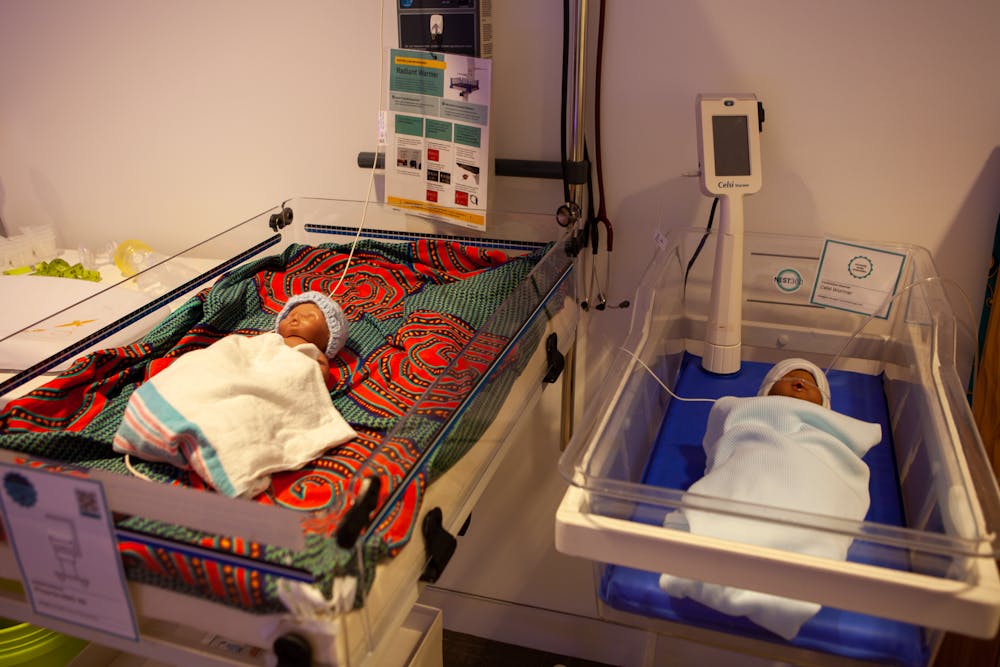NEST360 enters Phase Two of mission to reduce infant mortality

NEST360 — The Newborn Essential Solutions and Technologies — has entered phase two of its mission to reduce infant mortality in Sub-Saharan Africa, gaining $65 million in funding from the Bill and Melinda Gates Foundation, ELMA Philanthropies, the Children’s Investment Fund and others. NEST360 is a multi-institutional partnership that works in conjunction with Rice360, Rice’s Institute for Global Health Technologies.
Rebecca Richards-Kortum, the director of RICE360 and a Co-Principal Investigator for the NEST360 initiative, said that the ultimate goal is to aid the countries of Malawi, Kenya, Tanzania, Nigeria and Ethiopia in reaching their goals of reducing infant mortality.
“The overall goal of NEST360 is to partner with African governments to help them achieve their sustainability development goals for newborn survival, that is, to reduce the neonatal mortality rate below 12 deaths per 1000 live births,” Richards-Kortum said. “For small and sick newborns, we are strengthening the technologies needed for care … We are strengthening the clinical and biomedical workforce of these hospitals.”
Richards-Kortum said the focus of phase two is to strengthen health policies and build long-term sustainability for the interventions.
“In phase one, we made a lot of progress together to strengthen the standards for newborn care in the regard [of medical technologies],” Richards-Kortum said. “But the policies for health technology management are not as far along … [For example], how do you get rid of technologies when they are at the end of their lifetime and plan for the procurement of new technology? This is a place where national policies need to be strengthened and is a huge focus for us as we enter phase two.”
Ojas Dumbre, a Baker College junior who did research for the NEST360 project last summer, said that phase two is focused on long-term sustainability.
“In my eyes, [NEST360] entering phase two represents going from a sustainable model of collaborating alongside these countries to eventually leaving,” Dumbre said. “The hope is to not make a reliance on U.S. aid but rather keep the leadership local, and to use the ideas gained to expand into other countries.”
Richards-Kortum said that the funding for the project comes from multiple donors and is subdivided to accomplish the various goals of the project.
“The funds are divided across the five countries where we’ll be working,” Richards-Kortum said. “There is a portion that’s going toward direct implementation, another segment going toward making sure technologies are delivered, a portion that’s going toward the data system and then a large portion going toward ensuring sustainability beyond phase two.”
Executive Director of Rice360 Yvette Mirabal said that besides purely financial benefits, the donors of NEST360 work together to accomplish a mutual goal of reducing infant mortality.
“We’re coming together [with the donors] and pooling our resources — not just financial but also their voice, their expertise,” Mirabal said. “It ends up being a partnership with funders to achieve a joint vision of what we would like to see in the world.”
Richards-Kortum said that the project has focused on building upon existing resources in African countries rather than starting completely from scratch.
“It’s important to recognize that the majority of funding for all of the newborn care that has happened through NEST360 came from the countries’ governments,” Richards-Kortum said. “NEST does not pay the salary of any doctors or nurses, we did not build any of the hospitals. We worked with the governments to improve and strengthen what was already being provided.”
Mirabal said that she hopes NEST360 will serve as a blueprint for other countries to accomplish their goals of reducing infant mortality.
“What form NEST Africa takes in the long term is going to be determined during phase two, but we envision that this directorate, this organization, will continue to be a resource for other countries,” Mirabal said. “NEST could be implemented today by any country; they could take the resources, the materials and the purchased technologies. They don’t have to go through the alliance, but we’re helping ensure the model is the best model that it can be.”
More from The Rice Thresher

Five international visas revoked at Rice
Federal authorities have revoked visas for five international affiliates at Rice — three current students and two recent graduates, President Reginald DesRoches announced in an April 11 message to campus. The revocations are “not related to social activism or protests,” a university spokesperson told the Thresher.

Modified Beer Bike races rescheduled to April 18
Beer Bike races have been rescheduled for April 18 at 5-8 p.m. The makeup event was announced in an email to Beer Bike captains, coordinators and stakeholders, from the campuswide coordinators and the Bike Captains Planning Committee.

Good Friday and college night overlap sparks ire among students
Four college nights are happening on Good Friday this year. This overlap has caused controversy amongst students who observe the high holy day.

Please note All comments are eligible for publication by The Rice Thresher.